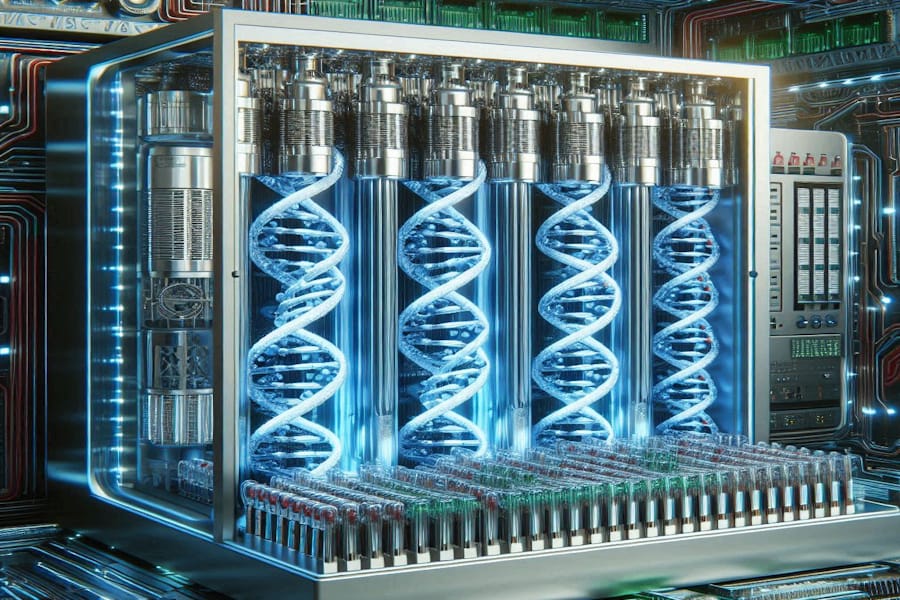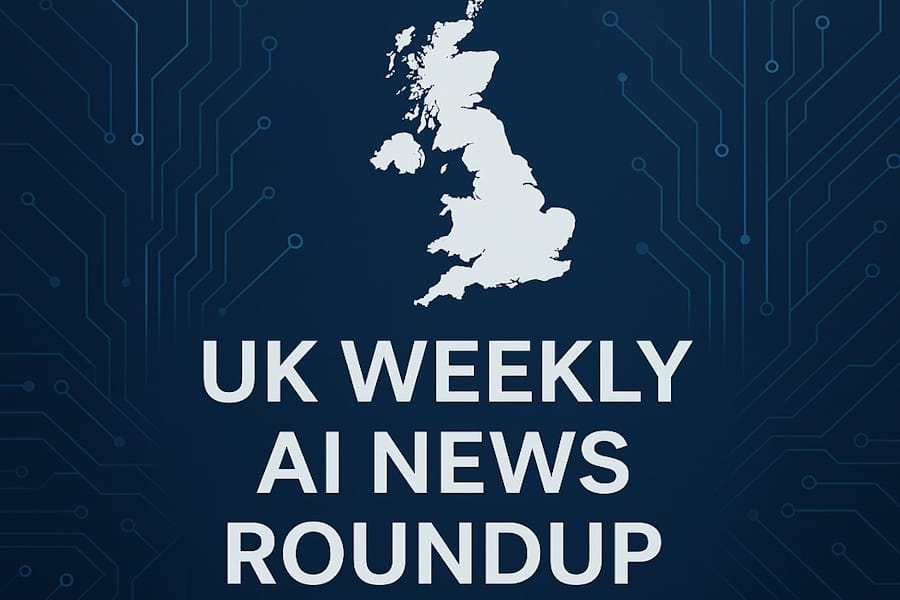Is DNA Computing the Future of More Efficient AI?

Publish Date: Last Updated: 18th June 2025
Author: nick smith- With the help of GROK3
Scientists are exploring a groundbreaking way to make computers faster and less power-hungry, and it’s all thanks to DNA—the same molecule that carries our genetic code. A team led by Dr. Fei Wang at Shanghai Jiao Tong University has developed a new type of computer that uses DNA strands instead of traditional silicon chips. Their findings, published in the journal Nature, suggest this technology could revolutionize artificial intelligence (AI) by making it more energy-efficient.
A Computer Made of DNA
Traditional computers use electricity to send signals through tiny circuits on silicon chips. But Dr. Wang’s team created a “liquid computer” using short strands of DNA floating in a special solution. These DNA strands act like wires and switches, forming circuits that can solve problems like math equations or even detect diseases.
By combining hundreds of DNA strands, the team built something called a DNA-based programmable gate array (DPGA). This system is incredibly flexible—it can be programmed to create over 100 billion different circuits! In one test, the DNA computer solved a math problem, and in another, it identified molecules linked to kidney cancer.
Why This Matters for AI
AI systems, like those powering chatbots or self-driving cars, need a lot of energy to process data. DNA computers could change that. They work using chemical reactions, which use far less power than traditional electronics. This makes them perfect for devices like smartwatches or medical sensors, where saving energy is crucial.
The DNA system is also great at handling many tasks at once, a key feature for AI, which often juggles huge amounts of data. Plus, because DNA is part of living things, it could lead to AI that works directly with biological samples, like blood or saliva, to spot diseases early.
Challenges Ahead
While the idea is exciting, DNA computing is still in its early days. The random way DNA strands mix in liquid can cause errors, and it’s slower than traditional computers. Scientists need to make it more reliable and faster before it can power everyday AI systems.
A Glimpse of the Future
Dr. Wang believes DNA computers could one day be used in smart medical devices that detect diseases instantly or in eco-friendly AI systems that save energy. This technology could make AI not only smarter but also kinder to the planet.
As research continues, DNA computing might just be the key to making AI more efficient and sustainable, bringing us closer to a future where technology and biology work hand in hand.
Recent AI News Articles
AI Questions and Answers section for Is DNA Computing the Future of More Efficient AI?
Welcome to a new feature where you can interact with our AI called Jeannie. You can ask her anything relating to this article. If this feature is available, you should see a small genie lamp above this text. Click on the lamp to start a chat or view the following questions that Jeannie has answered relating to Is DNA Computing the Future of More Efficient AI?.
Be the first to ask our Jeannie AI a question about this article
Look for the gold latern at the bottom right of your screen and click on it to enable Jeannie AI Chat.




